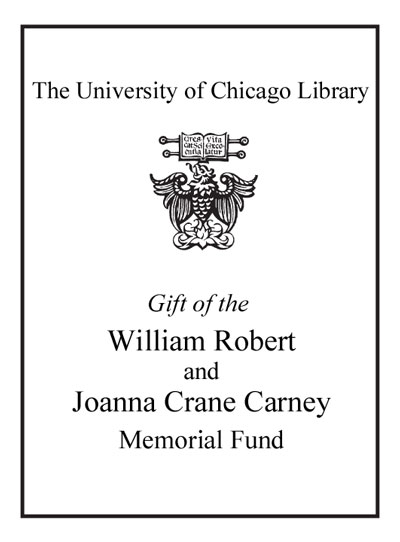The Social World of the Sages : An Introduction to Israelite and Jewish Wisdom Literature /
Saved in:
| Author / Creator: | Sneed, Mark R., author. |
|---|---|
| Imprint: | Minneapolis : Fortress Press, [2015] |
| Description: | xvii, 450 pages : illustrations, maps ; 23 cm |
| Language: | English |
| Subject: | |
| Format: | Print Book |
| URL for this record: | http://pi.lib.uchicago.edu/1001/cat/bib/10318206 |
Table of Contents:
- Acknowledgements and Dedication
- Maps, Illustrations, Figures, and Sidebars
- Abbreviations
- 1. The Nature of Wisdom and Its Practitioners
- Defining Wisdom
- The Semantic Domain of Wisdom
- Two Broad Kinds of Wisdom
- Who Were the Sages?
- 2. The World and Worldview of the Wise: An Anthropological Approach
- Geography and Climate of Ancient Palestine
- Israelite Society
- Economy of Ancient Israel
- The Ancient Israelite Worldview
- 3. Scribalism in Egypt and Mesopotamia
- Mesopotamian Scribalism
- Egptian Scribalism
- Summary
- 4. Western Periphery Scribalism
- The Western Periphery
- Important Sites
- The Amarna Letters
- Canaanite Literature and Mythology
- Summary
- 5. Istaelite Scribalism and the Place of Wisdom Literature Within It
- Writing in the Second Millennium BCE
- The Emergence of the Alphabet
- Scribalism and Literacy in Ancient Isracl
- Yoram Cohen and Late Bronze Age Wisdom Literature
- Paul-Alain Beaulieu and Babylonian Wisdom Literature
- The Place of Wisdom Literature within the Israelite Scribal Curriculum
- Conclusion
- 6. The Wisdom Corpus as a Mode of Literature
- Genres
- Generic Worlds versus Worldviews
- Biblical Genres and Their Social Setting
- The Elusive Nature of Genres
- The Instability of Genres
- Economy of Genres
- Conclusion
- 7. The Poetics, Axiology, and Rhetoric of Wisdom Literature
- Wisdom Literature as Poetry
- What is Hebrew Poetry?
- The Aphorism as the Primary Genre of the Wisdom Literature
- The Weighing of Values: A Structural Approach
- Disjointed Proverbs
- Paradoxes
- The Rhetoric of Wisdom
- Summary
- 8. Social World of the Sages
- Honor and Shame in Israelite Society
- The Social Class of the Sages
- The Sages as Intellectuals
- Women and Wisdom
- Summary
- 9. The Book of Proverbs
- Structure
- Clusters and Twice-Told Proverbs
- Authorship
- Date
- Relationship between Proverbs 22:17-24:22 and the Instruction of Amencmope
- Intended Audience
- Sub-Genres
- Demotic Egyptian Sentences
- Other Special Genres
- 10. The Book of Job
- Structure
- Integreity
- Genre
- Authorship and Date
- Job and Popular Culture
- Ancient Near Eastern Parallesls
- Important Themes
- Honor and Job
- God versus Job
- 11. Ecclesiastes
- Structure
- Authorship and Audience
- Date
- Qohelet's Idiosyncratic Use of Language
- The Meaning of Hebel
- Qohelet's Ethical System: Hedging One's Bets
- Honor and Qohelet
- Comparative Literature
- 12. Sirach and Sapientia
- Judaism and Hellenism
- Ben Sira
- Wisdom of Solomon or Sapientia
- 13. Wisdom Psalms and the Dead Sea Scroll Wisdom Literature
- The Outer Limits of the Wisdom Tradition
- Wisdom Psalms
- Dead Sea Scroll Wisdom Literature
- Works Consulted
- Index of Scripture Passages
- Index of Names and Subjects

